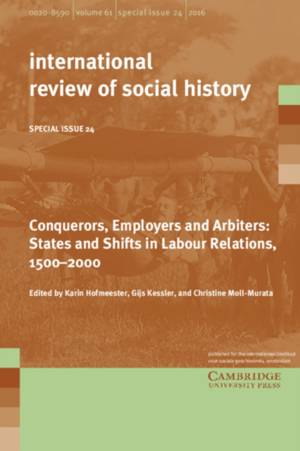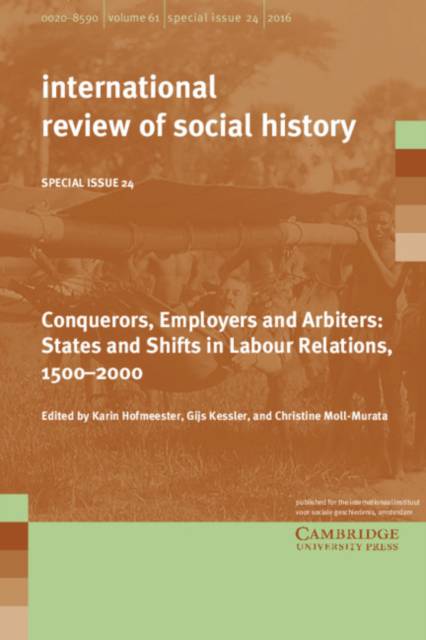
- Afhalen na 1 uur in een winkel met voorraad
- Gratis thuislevering in België vanaf € 30
- Ruim aanbod met 7 miljoen producten
- Afhalen na 1 uur in een winkel met voorraad
- Gratis thuislevering in België vanaf € 30
- Ruim aanbod met 7 miljoen producten
Zoeken
Conquerors, Employers and Arbiters
States and Shifts in Labour Relations, 1500-2000
€ 28,45
+ 56 punten
Omschrijving
Starting from a broad definition of labour relations as the full range of vertical and horizontal social relations under which work is performed, both within and outside the household, this volume examines the way states have shaped and interacted with labour relations in a wide range of periods and places, from the sixteenth-century silver mines of Potosí in the Andes to late twentieth-century Sweden, and from seventeenth-century Dzungharia to early twentieth-century colonial Mozambique. The articles presented look at very different types of states, from local and regional power holders to nation states and empires, and explore the activities of these states and their impact on labour relations in three roles, as conquerors, employers and arbiters. The volume finds diversity, but also a remarkable degree of similarity across space and time in the mechanisms deployed by states to extract and allocate the labour required to carry out their essential tasks.
Specificaties
Betrokkenen
- Uitgeverij:
Inhoud
- Aantal bladzijden:
- 286
- Taal:
- Engels
- Reeks:
- Reeksnummer:
- nr. 24
Eigenschappen
- Productcode (EAN):
- 9781316642528
- Verschijningsdatum:
- 24/03/2017
- Uitvoering:
- Paperback
- Formaat:
- Trade paperback (VS)
- Afmetingen:
- 154 mm x 232 mm
- Gewicht:
- 412 g

Alleen bij Standaard Boekhandel
+ 56 punten op je klantenkaart van Standaard Boekhandel
Beoordelingen
We publiceren alleen reviews die voldoen aan de voorwaarden voor reviews. Bekijk onze voorwaarden voor reviews.










